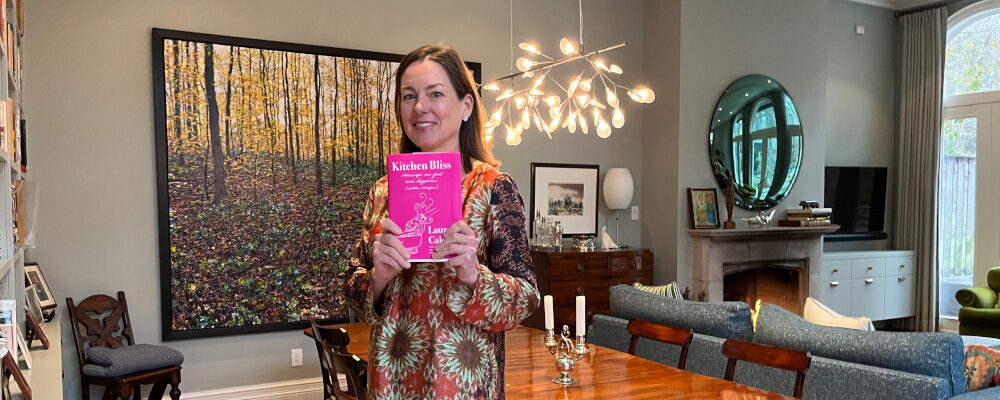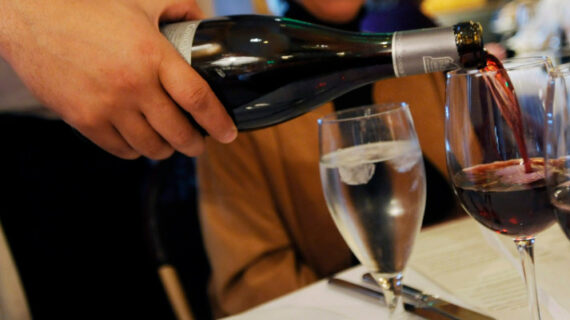Review of: Kitchen Bliss: Musings on Food and Happiness (With Recipes)
Author: Laura Calder
Publisher: Simon & Schuster (2023)
The story might be apocryphal. I don’t remember where I first heard it, nor can I find any reliable source for its veracity. I have repeated it as many times as I have heard it and it has become conventional wisdom in the wine trade of this province, though I suspect there is a version of it in every consumer wine market.
The story goes that there is a Liquor Control Board of Ontario memo somewhere on file in the monopoly’s opaque bureaucracy that states that the large majority (80 percent? 90 percent?) of the wine sold from their stores is consumed within two hours of being purchased. Documented or not, the idea tracks.
Firstly, 80 or 90 percent of the wine sold anywhere in the world would be just as well drunk within two hours of purchase. That’s what it was made to do and has no less business being put down than a bottle of Coca-Cola. Secondly, it jibes with modern life, that most of us might pick up a bottle of wine on our home from work, or on an errand if we work from home, and open it with dinner that night.
The point being that the natural habitat for a bottle of wine is in the kitchen and then the table. And these are the principal subjects of Laura Calder’s new book, Kitchen Bliss: Musings on Food and Happiness (With Recipes). Calder does not write about wine per se, but it’s there lurking on the table, whether mentioned explicitly or in the reader’s (my) imagination.
Full disclosure: I have known Laura Calder for some time and consider her a friend. I have followed her career as both a James Beard Award-winning author (for her first book, French Food at Home (2003)) and a TV personality, and more lately as a social media presence and Substacker. Kitchen Bliss, her sixth book, fits into the overarching civilizing mission of her career, which is to help her readers use cooking and the pleasures of the table to find more happiness in our lives.
I caught up with Calder recently, and we filmed a ‘fireside chat’ video about her book for her website project, A Place At My Table. Tables were, in fact a topic of our conversation. She said, “It’s right there waiting for us, in the middle of the room and a lot of people ignore it… but if you go there, your back is to the chaos of the world outside, you’re focussed in on good things, on people, and if you do that as a practice, it’s restorative.”
Kitchen bliss wasn’t originally meant as a “food narrative”, Calder explains. She had originally given her editor a pitch for a conventional cookbook, but was asked instead to write something like the book she delivered: stories about cooking with recipes. At first, Calder found the idea of being given this kind of carte blanche “terrifying”, but in the enforced solitude of the COVID lockdowns she became ever interested in why she (and we) cook, and what time in the kitchen has meant for her over her life to date.
Though it’s a kind of memoir, it jumps from different periods in Calder’s life over 37 short chapters, which address the challenges and rewards of keeping up a happy and functional kitchen and what it means to be a good host—and a good guest.
Calder lived for many years in France, in Paris and Burgundy, and is something of an ambassador of Gallic ways to her English-speaking audience. Kitchen Bliss draws on that tradition, but more in terms of the tricks and sensibilities that the French employ to enjoy themselves with good food and company. She draws too on her childhood in the Maritimes, and her contemporary life in Toronto, with episodes in Vancouver, Munich, and other stops along the way.
Every chapter comes with two concise but detailed recipes. They are her recipes, in that they are tried and true and part of her repertoire. But they are also very often attributed to a friend or family member who has passed them on. Calder sees recipes as a kind of shared heritage: “I think recipes should be passed along, that’s what they’re for.”

Following the pause in hospitality that came with the pandemic lockdowns, Calder’s Kitchen Bliss re-introduces food and the act of serving and receiving it as a remedy for the malaise of modern isolation:
“I’m trying to take care of myself and other people. It’s important for mental health and it’s important for morale and, boy, did I ever realize that during the pandemic… We are nourished by food in more ways than physically.”
Calder says she wrote for “anyone who wants to think about how to use the simple things in daily life to live a better life.” She sees the table as a “tool for wellness”, explaining that, “if you approach it the right way it can really work wonders on how you feel about who you are and about your life.”
It bears mentioning that beyond Calder’s invitation to wellness, and health through mindful hedonism, Kitchen Bliss is a funny book and a fun book to read. The author is not above placing herself as the foil in an amusing anecdote and does not take herself overly seriously. Calder’s chapter on dishwashing is particularly wry as it makes the case for this underappreciated art of “making order out of chaos”.
It seems that there has been much chaos in the year and months since the end of the pandemic restrictions in Canada and across the globe. Many of us are still trying to figure out how exactly our lives are going to work in a world that is not quite like it was at the beginning of 2020. Kitchen Bliss offers a reminder that the pleasures of the table offer a constant and grounding respite from that chaos. To be enjoyed with a glass of wine or not.




